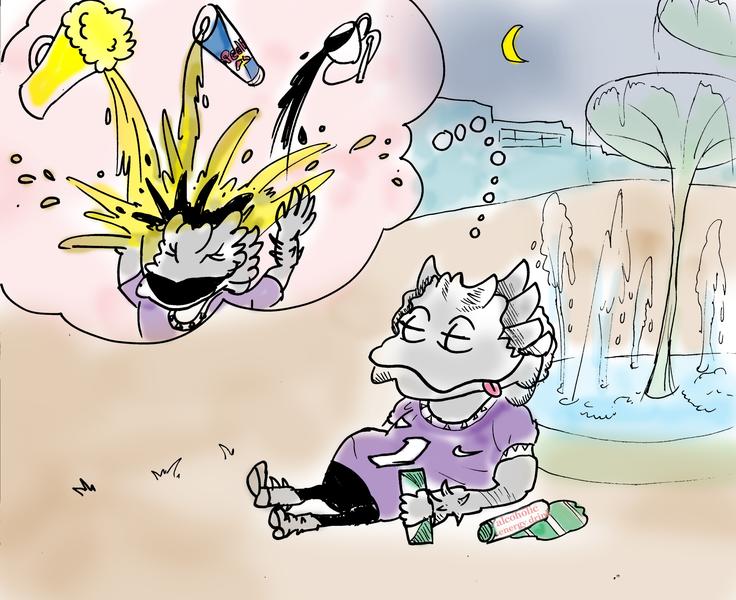According to the Food and Drug Administration, substances that contain dietary supplements, such as energy drinks, are allowed to go on the market before pre-approval. But that does not necessarily mean they are safe for consumption.
According to Inside Higher Ed, officials at Ramapo College, a public liberal arts college in New Jersey, banned alcoholic energy drinks on campus this month.
Alcoholic energy drinks mask the effects of alcohol so people don’t realize how much they have had to drink, biology instructor Michael Sawey said.
Sawey said people who mix energy drinks and alcohol tend to drink more alcohol than someone who does not mix the two. This can lead to people getting into a situation where they no longer have control of what happens to them as a result of drinking too much alcohol.
Andrea Harmon, a junior supply and value chain management major, said she drinks energy drinks because they keep her going throughout the day, but she no longer mixes energy drinks with alcohol.
“I just didn’t like the way it made me feel,” Harmon said. “Once I realized it was a depressant and a stimulant I knew it just wasn’t good for me, so I just won’t mix the two together.”
Knowing the effects that alcoholic energy drinks have on the body is something that students need to be aware of so that they can make better decisions when drinking, Harmon said.
Kia Igel, a junior strategic communication major, said students should be better educated on how much alcohol is already in the alcoholic energy drinks.
When people mix their own drinks, they know how much alcohol they put in them, Igel said. But when the drink is already mixed, people don’t really pay attention to how much alcohol is in a drink.
Sawey said the difficulty in trying to ban alcoholic energy drinks is that both alcohol and energy drinks are legal. Both of those components can be bought separately and then mixed together, so it wouldn’t do much good to ban them.
The FDA does not regulate energy drinks because they are considered to be dietary supplements, Sawey said. As a result, there are some energy drinks that have substances other than caffeine, like taurine, whose effects are unknown.
These supplements can be included in the drinks even though the physical effects on the body can be the same as a drug that is regulated by the FDA, Sawey said.
According to Inside Higher Ed, last November the FDA threatened to ban alcoholic energy drinks if they could not prove the beverages were safe.
“It’s kind of unfortunate that this is an unregulated drug,” Sawey said. “I think we are setting ourselves up to see some perhaps dangerous problems of people drinking too much of these.”

